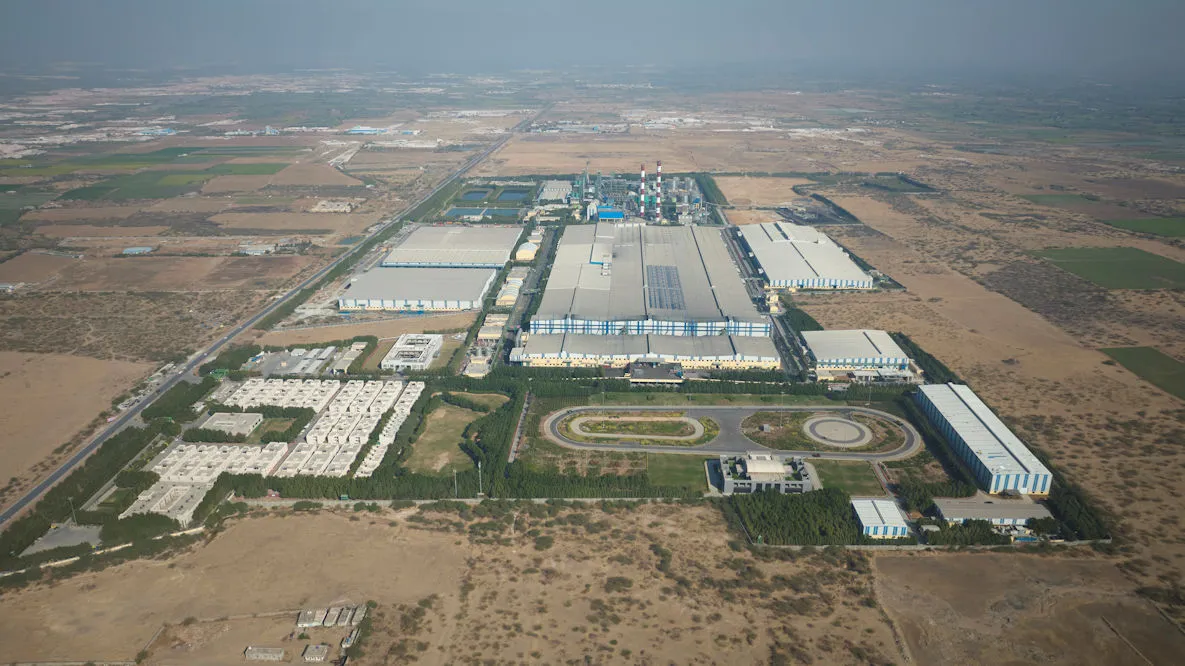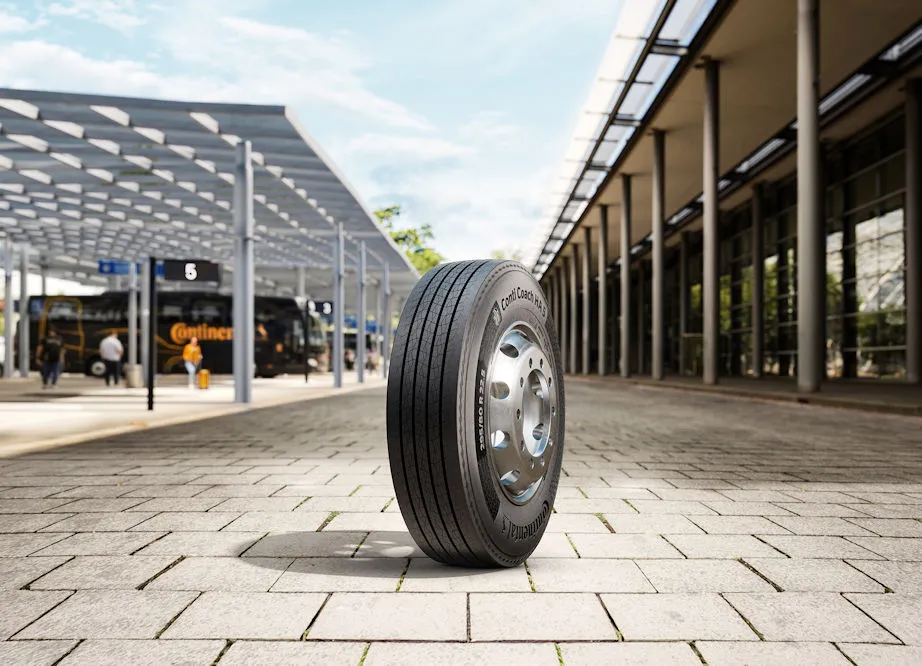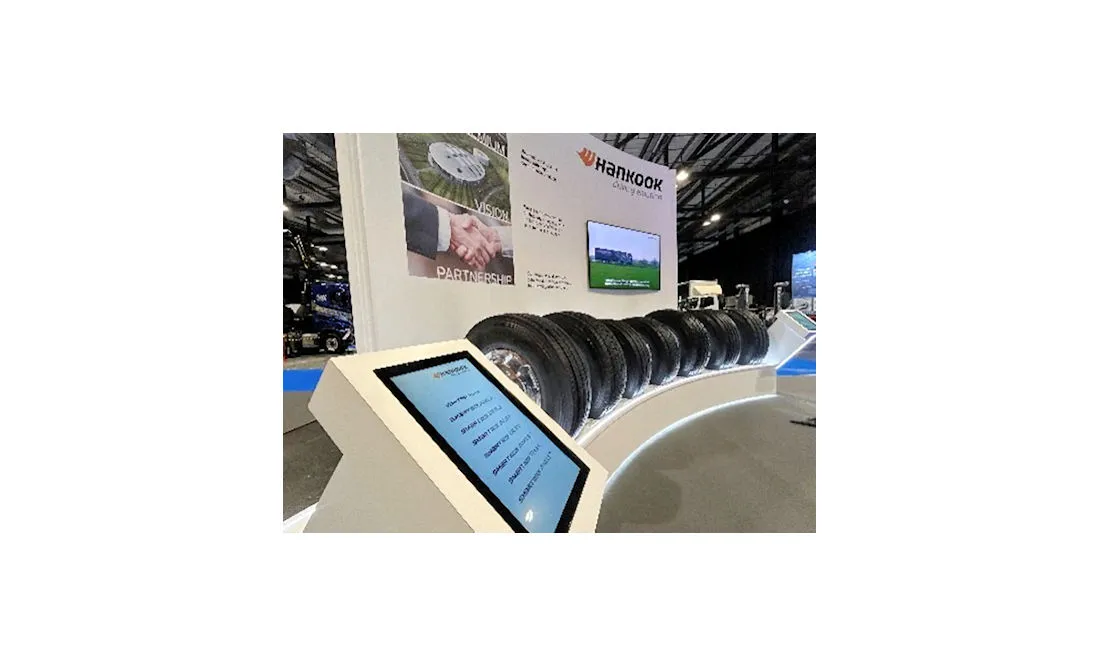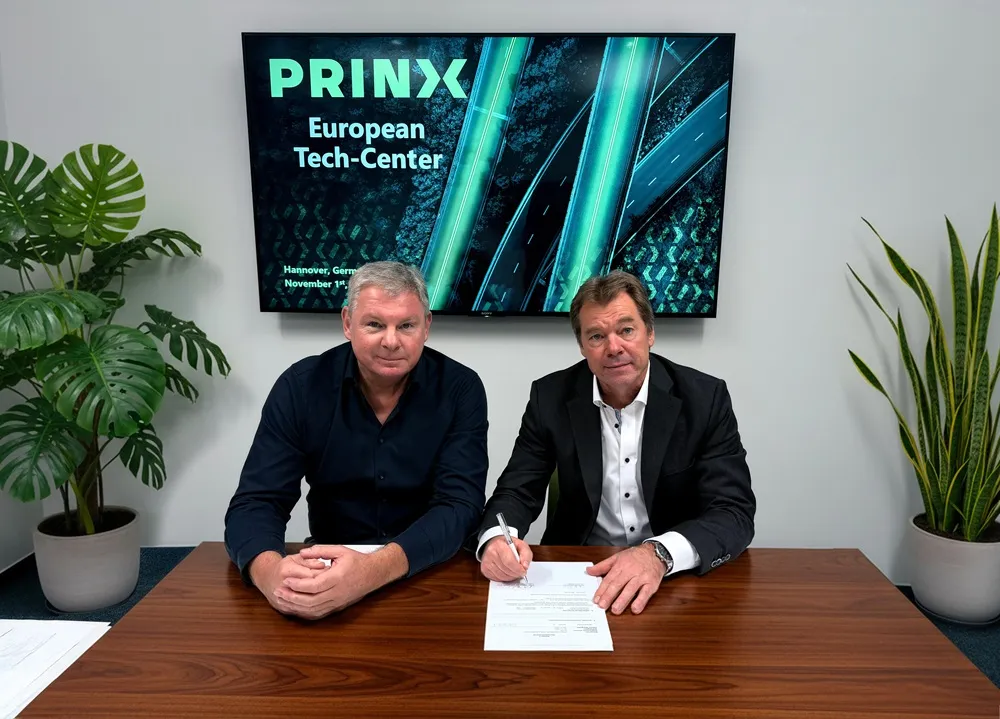Continental reduces the rolling resistance of tyres and thus lowers fuel consumption and CO2 emissions.
The Rolling Ressistance is to Make the Difference
Continental has long focused its research and development work on how tyres influence fuel consumption. The goal is to target solutions that reduce fuel consumption and CO2 continuously reduce emissions. Around a quarter of the CO2 emissions from road traffic and the transport sector in Europe are caused by heavy commercial vehicles. However, in order to be able to achieve the EU climate targets, fleet operators are required to reduce their fleet’s CO2 emissions by 30 per cent by 2030. Saving CO2 in turn means saving fuel. In view of the historically high fuel prices, potential for saving fuel is becoming even more important.
Criteria such as tyre pressure, vehicle design, load distribution, mileage, traction and tyre performance are important for fuel consumption and thus for CO2 emissions. However, by far the most important and influential factor remains rolling resistance. Here it is always a question of bridging the conflicting goals between low rolling resistance on the one hand and safety-relevant properties such as grip and handling on the other. Continental starts with the tread compounds in particular. These must be designed for low friction without negatively affecting grip or mileage. Treads and sidewalls are subjected to bending, buckling and shearing forces. Tyres are influenced by various forces while driving. The constant deformation of the tyres and the restoration to their original shape means that part of the energy is converted into heat, a process called hysteresis.
The premium tyres help lower fleet costs and reduce CO2 emissions without compromising on mileage and durability. In mixed regional traffic in particular, the EcoRegional offers considerable savings potential depending on the driver’s driving profile. In mixed regional traffic in particular, the EcoRegional offers considerable savings potential depending on the driver’s driving profile. For more transparency when choosing tyres, Continental therefore offers the CO2 and fuel calculator based on the VECTO simulation tool. With this calculator, fleet operators can calculate how much emissions and fuel they can save by choosing the right tyres.








